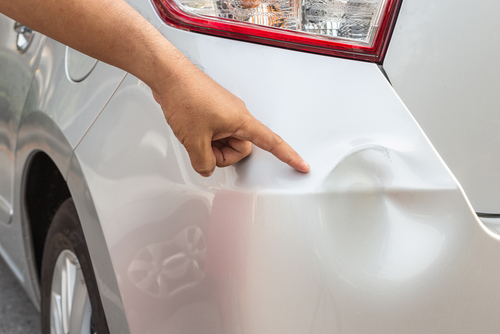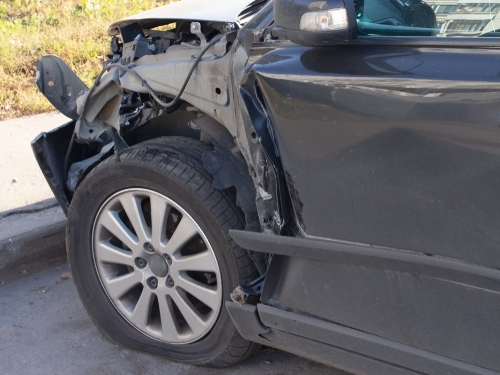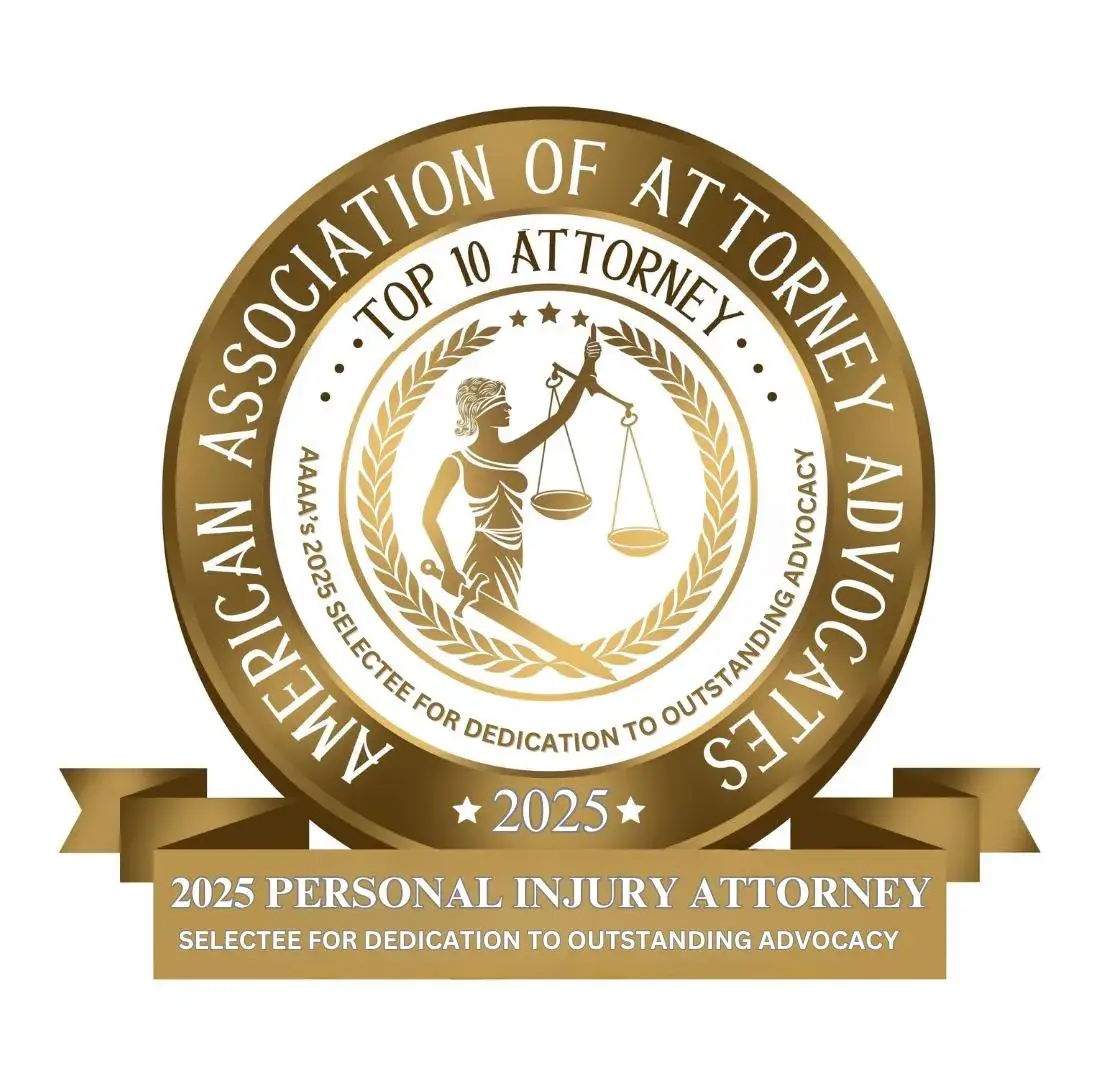
Do I Need a Lawyer for a Minor Car Accident in New Jersey?
In New Jersey, you might not think you need a lawyer for a simple fender-bender with no obvious injuries. However, many accidents that seem “minor” at first unravel into significant medical bills and financial trouble down the road. The biggest risks are not always the visible damage to your car, but the hidden issues that surface later.
These complications frequently involve delayed-onset injuries and the challenge of dealing with New Jersey’s no-fault insurance laws on your own. A large number of claims filed after minor collisions involve soft tissue injuries, which typically do not show symptoms immediately. A Fort Lee car accident lawyer can help you navigate these issues and pursue fair compensation.
If you have a question about what happened in your accident, our team is here to listen. Call us at (201) 585-9111.
Key Takeaways for Minor Car Accidents in New Jersey
- “Minor” accidents hide major risks. Delayed injuries like whiplash are common, and their true costs are not immediately obvious.
- New Jersey’s “Verbal Threshold” limits your right to sue. Unless your injury is legally considered “permanent,” you might not be able to recover compensation for your pain and suffering.
- Insurance adjusters are not on your side. Their goal is to settle claims for the lowest amount possible, and an early settlement offer is rarely enough to cover your future needs.
The Hidden Risks: Why a “Minor” Accident Might Be More Serious Than You Think
After a collision, a common thought is, “I feel fine, so I must be okay, right?” This is a dangerous assumption. The adrenaline that floods your system during an accident is a powerful painkiller that masks serious injuries for hours or even days. Hire an Attorney After a Car Accident to protect your rights and handle the claim while you focus on your recovery.
The full extent of the damage isn’t clear until the initial shock wears off. Some of the most common delayed injuries include:
- Whiplash: A neck injury caused by the rapid back-and-forth movement of the head. Symptoms may take 24 hours or more to appear and may lead to chronic pain and stiffness.
- Soft Tissue Injuries: This refers to damage to muscles, ligaments, and tendons. These injuries don’t show up on an X-ray but cause persistent pain and limit your movement for months.
- Concussions: A mild traumatic brain injury resulting from a jolt or blow to the head. You don’t have to lose consciousness to have a concussion, and symptoms like headaches, dizziness, or confusion may not appear right away.
Another common misconception is that minimal car damage means the insurance claim will be simple. A car’s bumper is designed to absorb and withstand impact, which means the vehicle looks perfectly fine while the force of the crash was transferred directly to the people inside.
The insurance company’s perspective must also be considered. As a business, its goal is to resolve claims efficiently and for a fair amount. This amount is frequently based on the visible, and typically minimal, property damage, which leads them to argue that you could not have been seriously hurt.
Although New Jersey law requires you to report any accident with apparent damages over $500, always report any incident to your own insurer. Many policies require you to report every collision, and failing to do so could put your coverage at risk. Average Settlement for a Car Accident varies based on injury severity, medical costs, and other damages, so documenting everything is essential.
Understanding New Jersey’s No-Fault System: What Does It Actually Mean for You?
New Jersey is a no-fault state. Simply put, this means your own car insurance company is responsible for paying your initial medical bills through your Personal Injury Protection (PIP) coverage, regardless of who caused the accident. Think of PIP as your primary health insurance for a car accident. You must use it first to pay your doctors before any other insurance gets involved.
This rule applies everywhere in the state, from a side street in Palisades Park to a major highway near Hackensack. Your Personal Injury Protection will cover your medical treatments and, depending on your policy, lost wages up to your chosen limit.
The “Verbal Threshold”: The Big Catch in NJ’s No-Fault Law
The biggest complication in New Jersey’s no-fault system is the “Limitation on Lawsuit” option, also known as the “Verbal Threshold.” Most drivers select this option on their insurance policies because it significantly lowers their premiums. However, it comes with a major trade-off.
By choosing the verbal threshold, you give up your right to sue an at-fault driver for pain and suffering unless your injuries are severe and fall into one of six specific categories:
- Death
- Dismemberment
- Significant disfigurement or scarring
- Displaced fractures
- Loss of a fetus
- A permanent injury
From a legal standpoint, a “permanent injury” is one that has not healed to function normally and is not expected to, even with further medical treatment. This is where many “minor” accident claims become contentious. The other driver’s insurer will almost certainly argue that your whiplash or soft tissue injury is not “permanent” and therefore doesn’t meet the threshold, even if you are in constant pain. This is a common point of dispute where having legal guidance makes all the difference.
What If the Other Driver Leaves the Scene?
In New Jersey, leaving the scene of an accident, even a minor one, is illegal. But that doesn’t stop it from happening.
Hit-and-run accidents are more common than most people realize, especially in crowded parking lots or when the damage appears minimal. And while the visible damage to your car may not look severe, the impact on your insurance claim can be major. Car Accidents in New Jersey often involve complex insurance rules, making legal guidance important for fair compensation.
Why Hit-and-Run Makes Things More Complicated
When the other driver leaves, several problems arise at once:
- You can’t get their insurance information
- There’s no one to immediately assign fault to
- Your own insurance company may become the one responsible for paying the claim
This is where Uninsured Motorist (UM) coverage comes into play. In New Jersey, your own auto policy includes UM coverage, which is designed to protect you in exactly this kind of situation. It allows you to file a claim with your insurer when the at-fault driver cannot be identified or does not have insurance.
But here’s the catch: even though you’re dealing with your own insurance company, that doesn’t mean the process will be smooth or automatic. You still have to prove the accident happened, that the other driver was at fault, and that your injuries or damages are real.
How This Affects Your “Minor” Accident
Here is why having legal help matters:
- Your own insurer may dispute the claim or delay payment while they investigate
- You may need to gather security footage, witness statements, or other evidence to prove a hit-and-run occurred
- If you suffered a soft tissue injury, like whiplash, you may still run into the same challenges with the verbal threshold and proving permanence
A lawyer helps you manage these complications early, so you are not left holding the bill for an accident someone else caused. This includes documenting your medical care, filing your UM claim properly, and protecting your rights if your insurance company pushes back. How Long After an Accident Can You Claim depends on strict state deadlines, so quick action is important.
Whether you were rear-ended at a red light or clipped in a parking lot, the fact that the other driver left changes the equation. Even without visible injuries or heavy car damage, the legal and insurance process becomes more difficult. If there was ever a moment to have someone in your corner, this is it.
The First Phone Call: What to Expect When the Adjuster Contacts You

Shortly after the accident, you will likely receive a call from an insurance adjuster. This person works for the other driver’s insurance company. Their job is to conduct a thorough investigation and resolve the claim. They are trained to be friendly and helpful, but their ultimate goal is to gather information that helps their employer’s position.
Why a Recorded Statement Could Be Harmful to Your Case
The adjuster will almost certainly ask you to provide a recorded statement about the accident. The questions they ask are typically structured to get answers that could be used to weaken your claim later on. For example:
- Adjuster: “How are you feeling today?”
- You: “I’m okay, I guess.”
This seems like a harmless exchange. But if you later require extensive physical therapy for a neck injury, the adjuster may point to your initial statement and argue that your injury wasn’t that serious from the beginning. You are not legally obligated to provide a recorded statement to the other driver’s insurance company. We advise politely declining until you have spoken with an attorney.
The Quick Settlement Offer
It is also common for an adjuster to offer a quick settlement of a few hundred or a thousand dollars to close your claim. This offer is almost always made before the full extent of your injuries and the total cost of your medical care are known. How Do Insurance Companies Negotiate shows why having legal help can prevent you from accepting less than you deserve.
Accepting this money requires you to sign a release form. This document permanently ends your right to seek any further compensation for that accident. If your “minor” soreness turns into a serious injury that requires surgery, you will have no legal recourse. It’s a risk that is rarely worth taking.
When Should You Consider Calling a Lawyer for a Minor Car Accident in New Jersey?
Here are five indicators that it’s time to seek professional help.
1. You are experiencing any pain or discomfort.
If you feel any pain in your neck, back, or head, or if you have visited a doctor for any symptom you believe is related to the accident, you should seek a legal opinion. Your injury could be more serious than you realize, and your PIP benefits might not be enough to cover all the care you need.
2. The other driver’s insurance company is contacting you for a statement.
As we mentioned above, the adjuster’s goal is to gather information for their investigation. We handle all communications with the insurance company on your behalf, ensuring your rights are protected while you focus on your recovery.
3. There is disagreement about who was at fault.
New Jersey follows a modified comparative negligence rule. This legal concept means your compensation is reduced by your percentage of fault. If you are found to be more than 50% responsible for the accident, you are barred from recovering any damages for your pain and suffering. We investigate the accident to build a strong case and ensure blame is not unfairly placed on you.
4. A doctor suggests your injury could be long-term or permanent.
If there is any indication that your injury might meet the “Verbal Threshold,” you may have a right to seek compensation for pain and suffering. Evaluating whether an injury qualifies as “permanent” under the law requires a careful review of your medical records and a deep understanding of how New Jersey courts interpret the statute.
5. You feel stressed or confused by the process.
The amount of paperwork, strict deadlines, and unfamiliar insurance terminology is overwhelming, especially when you are trying to heal. Our firm is equipped to manage these details so you don’t have to.
Frequently Asked Questions About Minor Car Accidents in NJ
Do I have to report a minor car accident to the police in New Jersey?
Yes. Under New Jersey law, you are required to report any accident that involves an injury or property damage appearing to exceed $500. Given the high cost of modern vehicle repairs, it is always the safest course of action to call the police and have a report filed.
How long do I have to file a lawsuit in New Jersey?
The law that sets this deadline is called the Statute of Limitations. In New Jersey, under, you generally have two years from the date of the accident to file a personal injury lawsuit and six years to file a claim for property damage.
Will my insurance rates go up if I file a claim?
This is a common worry. In most cases, if you were not at fault for the accident, your insurance rates should not increase. Using your own PIP benefits to pay for your medical bills is part of the no-fault system and is not typically considered an at-fault claim that would trigger a rate hike.
What if the other driver doesn't have insurance?
Your own auto policy includes “Uninsured/Underinsured Motorist” (UM/UIM) coverage. This important coverage is there for this exact situation, allowing you to make a claim for your injuries with your own insurance company.
Protecting Your Rights After an Accident

What starts as a minor accident on a familiar road in Bergen County quickly becomes complicated if an injury appears or an insurance company’s offer seems unfair. We have years of experience helping people in the diverse communities of Fort Lee, Teaneck, Hackensack, and Englewood. We understand the challenges you face because we are part of your community.
You do not need to have all the answers before you call us for help. A single conversation is usually enough to help you understand your options and what to do next.
If you were in a car accident and have questions about what to do next, contact Maggiano, DiGirolamo & Lizzi, P.C. for a free consultation. Call us today at (201) 585-9111.



















